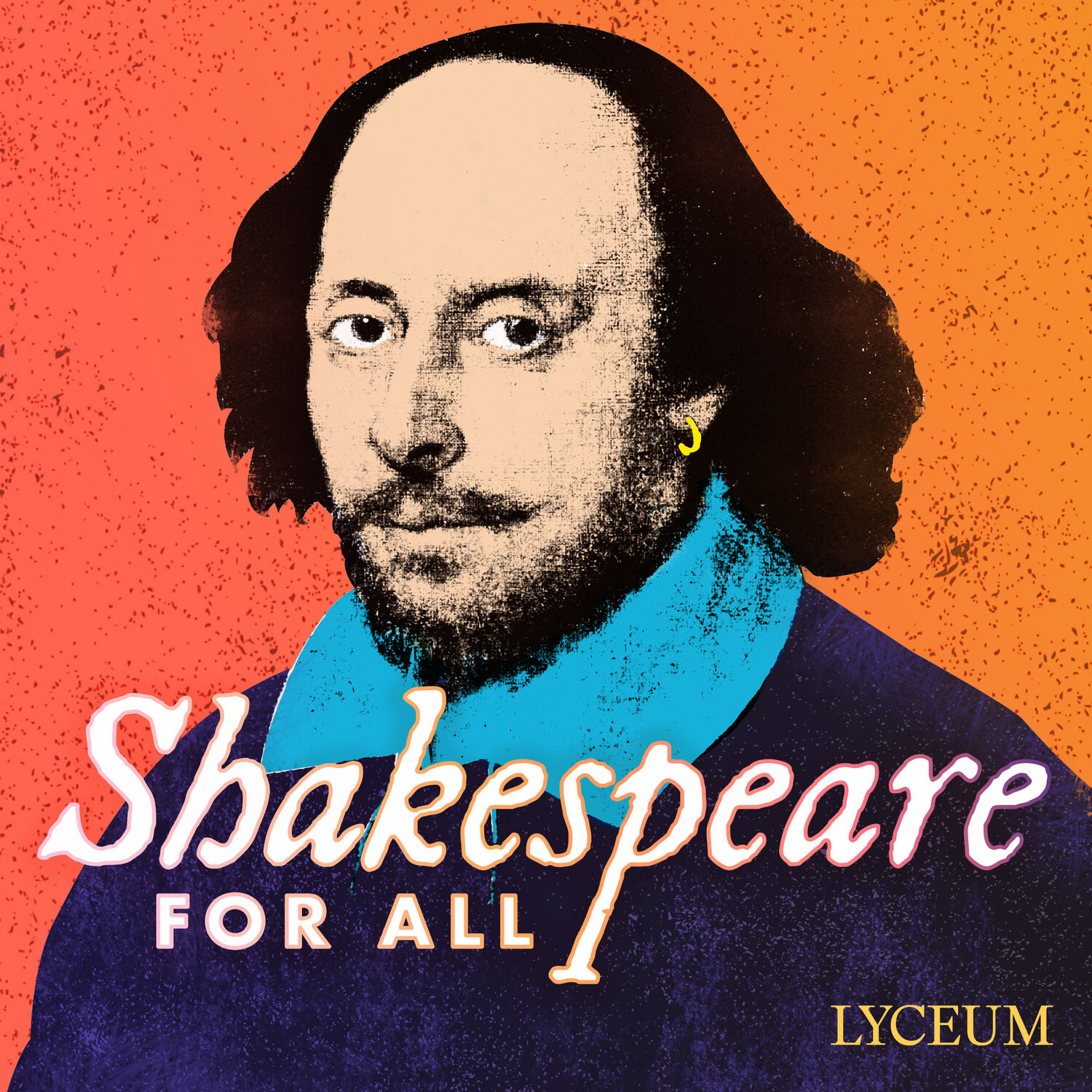The Merchant of Venice
“I WILL HAVE THE HEART OF HIM”
What You'll Learn
The story of The Merchant of Venice and the historical and cultural context behind the play
The strategies Shakespeare uses to create the turbulent, tragic, compelling character of Shylock
The way the play explores the tensions in all human relationships, even within the celebratory framework of comedy
Course Outline
The Merchant of Venice: The Story and the Context
The Merchant of Venice: The Characters and the Questions
The Merchant of Venice: The Language
Works Consulted for this Course
Engle, Lars. Shakespearean Pragmatism: Market of His Time. Chicago: Chicago University Press, 1993.
Garber, Marjorie B. Shakespeare After All. New York: Pantheon Books, 2004.
Leggatt, Alexander. “The Merchant of Venice: A Modern Perspective.” Folger Shakespeare Library. <https://shakespeare.folger.edu/shakespeares-works/the-merchant-of-venice/the-merchant-of-venice-a-modern-perspective/>
Maus, Katharine Eisaman. “Introduction,” The Merchant of Venice, in Shakespeare, William. The Norton Shakespeare. Edited by Stephen Greenblatt, Walter Cohen, Suzanne Gossett, Jean E. Howard, Katharine Eisaman Maus and Gordon McMullan. 3rd ed. New York: W. W. Norton & Company, 2016.
Smith, Emma. This Is Shakespeare. New York: Pantheon Books, 2020.
Shakespeare, William. The Merchant of Venice. Edited by Jonathan Bate and Eric Rasmussen. The RSC Shakespeare. New York: Random House Publishing Group, 2010
Shakespeare, William. The Merchant of Venice. Edited by John Drakakis. The Arden Shakespeare. London: Bloomsbury Publishing Plc, 2010.
The Merchant of Venice is one of Shakespeare’s most gripping and challenging plays. Labeled as a comedy in Shakespeare’s First Folio, today it resonates as tragedy as well, thanks to its most unforgettable character: the Jewish moneylender Shylock. Shylock experiences humiliation and oppression at the hands of the Venetian Christians, particularly the merchant Antonio. But when Antonio must borrow money from Shylock to help his beloved friend Bassanio woo the wealthy Portia, Shylock finds his dearest enemy in his power — and we see what harvest hatred reaps. In this course, you’ll learn the story of The Merchant of Venice, hear the play’s key speeches performed and analyzed by world-class Shakespearean actors and literary scholars, and witness how this comedy plumbs the difficulty and discomfort that shadow our most hostile and our happiest relationships.
In Part 1, you’ll be guided through a detailed account of the story with commentary by Stephen Greenblatt, John Cogan University Professor of the Humanities at Harvard University. Professor Greenblatt discusses the complicated historical context behind Shakespeare’s representation of Venice and of Shylock, and the role Shylock comes to play in Shakespeare’s comedy. This summary is told using the language of the play itself, placing key quotations in context to help you understand where these lines come from and what they mean.
Part 2 discusses the play’s central characters, their profound bonds of intimacy and animosity, and the effect of money on those bonds. Professor Greenblatt explores the way that Shylock took hold of Shakespeare’s imagination and how Shakespeare transforms a stereotypically villainous figure into something much larger and more complex. You’ll also discover how Shylock’s fraught experience is echoed in other characters across the play, which looks frankly at the difficulties of friendship and love, even as it offers the traditional satisfactions of comedy.
In Part 3, Professor Greenblatt offers close-readings of some of the play’s most significant scenes. You’ll get an in-depth look at the powerful relationship between Antonio and Bassanio, the climactic confrontation between Antonio and Shylock in the court, and the hard-edged poignancy of the play’s most famous speech: “Hath not a Jew eyes?”
You can hear the third episode of this course for free below. For the full course, subscribe today on Himalaya Learning. Use the promo code SHAKESPEARE for 14 days free.
Episode 3 - Speeches and Performers
Antonio, 1.1, “I pray you, good Bassanio, let me know it …” (Scott Ripley)
Shylock, 3.1, “He hath disgraced me …” (Ray Dooley)
Portia, Antonio, and Shylock, 4.1, “Tarry a little …” (Katy Stephens)
Course Instructor
Stephen Greenblatt
John Cogan University Professor of the Humanities at Harvard University
Stephen Greenblatt is John Cogan University Professor of the Humanities at Harvard University. He is the author of fourteen books, including Tyrant: Shakespeare on Politics; The Rise and Fall of Adam and Eve; The Swerve: How the World Became Modern; Shakespeare's Freedom; Will in the World: How Shakespeare Became Shakespeare; Hamlet in Purgatory; Marvelous Possessions; and Renaissance Self-Fashioning. He is General Editor of The Norton Anthology of English Literature and of The Norton Shakespeare, has edited seven collections of criticism, and is a founding editor of the journal Representations. His honors include the 2016 Holberg Prize from the Norwegian Parliament, the 2012 Pulitzer Prize and the 2011 National Book Award for The Swerve, MLA’s James Russell Lowell Prize (twice), Harvard University’s Cabot Fellowship, the Distinguished Humanist Award from the Mellon Foundation, Yale’s Wilbur Cross Medal, the William Shakespeare Award for Classical Theatre, the Erasmus Institute Prize, two Guggenheim Fellowships and the Distinguished Teaching Award from the University of California, Berkeley. Among his named lecture series are the Adorno Lectures in Frankfurt, the University Lectures at Princeton, and the Clarendon Lectures at Oxford, and he has held visiting professorships at universities in Beijing, Kyoto, London, Paris, Florence, Torino, Trieste, and Bologna, as well as the Renaissance residency at the American Academy in Rome. He was president of the Modern Language Association of America and a long-term fellow of the Institute for Advanced Study in Berlin. He has been elected to membership in the American Academy of Arts and Sciences, the American Academy of Arts and Letters, the American Philosophical Society, and the Italian literary academy Accademia degli Arcadi.



